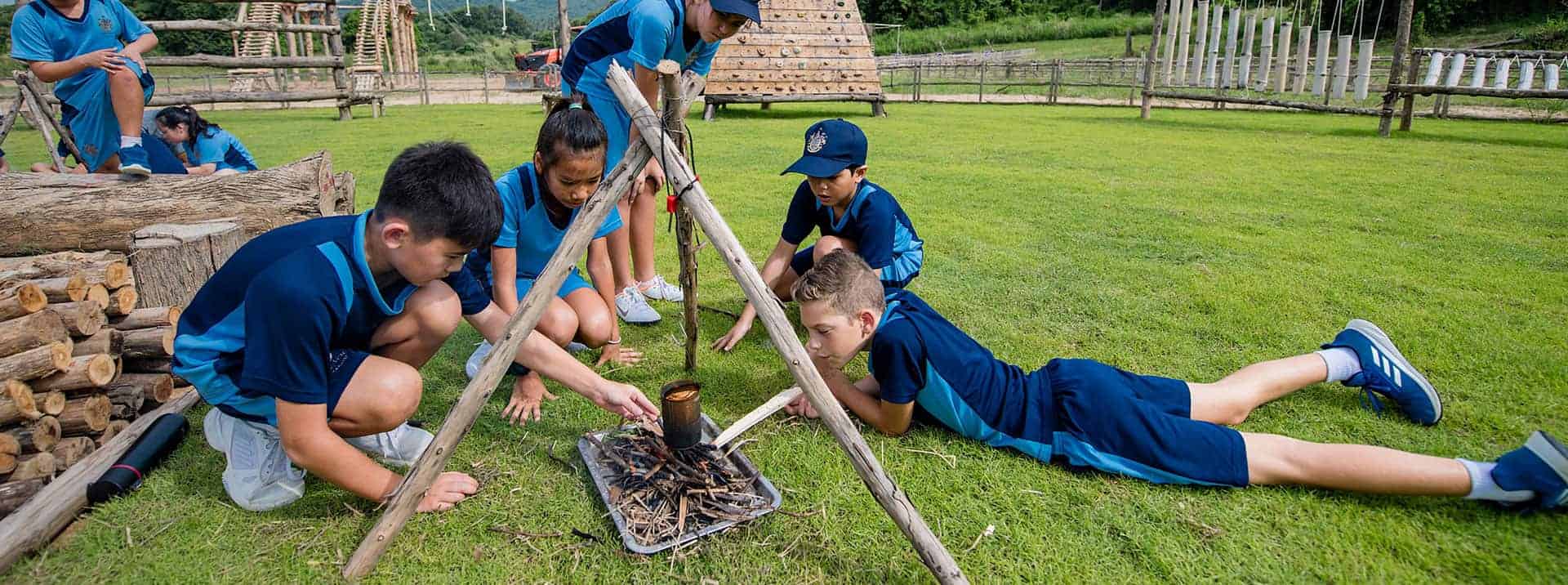From the very first days of watching your child interact with the world, parental love and instinct wants them not only to survive but to thrive. You want to give your children the support they need to do and be their best.
The ‘ whole person ’ is important to consider in a child’s journey through life; keeping their outlook broad and expansive as they learn.
Here are 3 ways you can support this kind of development:
Co-curricular learning
By offering a broad range of activities you can enrich a child’s learning experience, continually giving them fresh opportunities to develop knowledge and passion. Our co-curricular programme has activities that are run by staff members, who promote their own particular passions and hobbies outside the classroom, as well as specialist instructors brought in to further expand the prospects for learning. We have more than 70 different co-curricular courses, which cover everything from additional languages, debating, Eco Club and coding, to bush craft, archery, mindfulness, jazz dance and Lego league (to name just a few).
This spectrum of learning has a huge benefit on children. While there may be an inclination towards particular school subjects, exposing children to different opportunities, encouraging them to try new things (without fear of failure), and allowing them to learn through experience, indulges human curiosity and keeps children interested and engaged. If a co-curricular activity ignites a spark, our staff encourage development from good to excellent. We see excellence as a transferable skill that bolsters self-belief and becomes habit. Once you know you can thrive at one thing, your mind is open to the idea that you will thrive at others too.
Outdoor activity
We firmly belief that the strongest learning environments stretch far beyond the classroom walls. So much so that we have designed timetables to ensure all children get to enjoy the great outdoors regularly during the school day – be it time in the playground, sports lessons, games fixtures or one of the many co-curricular activities that take place around campus.
How does this fit in with expanding young minds? Studies show that simply exposing children to nature improves mood and cognitive performance. And nature is something we have in abundance here. Our pupils enjoy it as they walk to different classes; they immerse themselves in it at our beautiful Outdoor Education Centre ; they support it in Eco Club and create it in gardening club; they have it as the backdrop to their school life.
We give our pupils plenty of time for free play outside, as it allows children to be children. They can run, jump, skip, develop friendships and have freedom for imaginative play. It is their space to do what they like. We also have more structured time outside with PE and sports , which mean pupils do daily exercise. Aerobic exercise raises the heart rate and increases blood flow to the brain, which leads to the production of neurons that control memory and thinking. This kind of regular activity also releases endorphins, which promote feelings of positivity and support better mental health. The mind and body work in tandem; both need to be exercised regularly to be at their best.
Community Action
Giving back is a good philosophy to take through life. Encouraging school children to take part in community action offers them a hands-on, curiosity-based investigation where their local community becomes a real-world classroom. The Community Action Programme (CAP) we have at Rugby School Thailand helps our pupils to learn values that transcend race, class, religion, gender and politics, and it promotes international understanding and awareness of others. All this, while also encouraging new skills and interests. CAP is not just about creating a different type of learning environment, but a different kind of student mindset; one that is responsive to the people and world around them.
Through community action such as charity outreach, social enterprise, teaching younger children, caring for older generations and taking part in Duke of Edinburgh challenges, children adapt to new roles and explore new possibilities. They start to understand that they are a member of local and global communities and realise their responsibilities within them. Community action helps children to shift focus from themselves and develop a world-centric mindset for life.
If you like our approach to education, click here to find out more about Rugby School Thailand .

